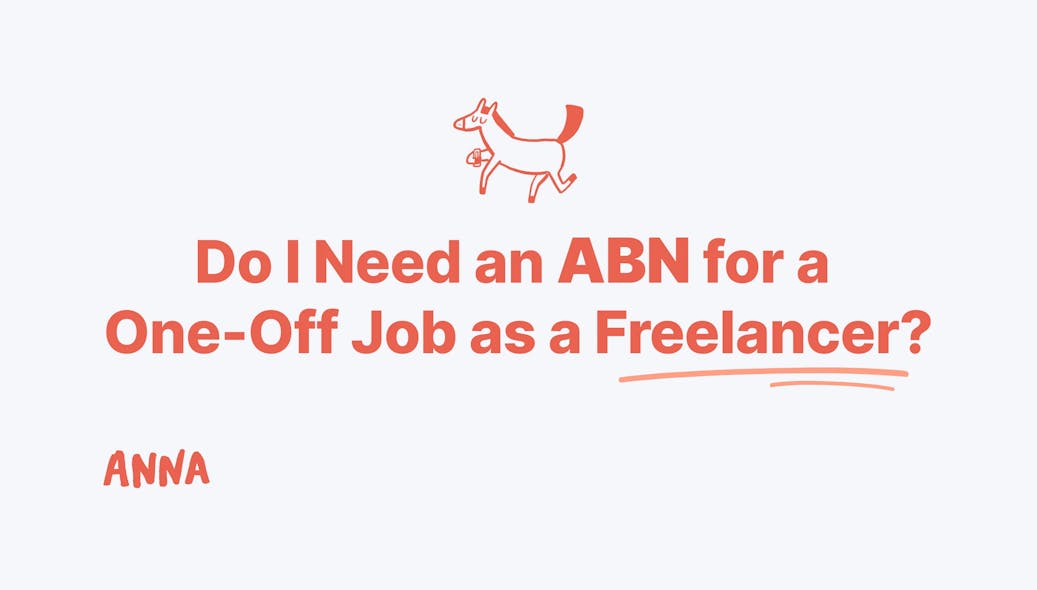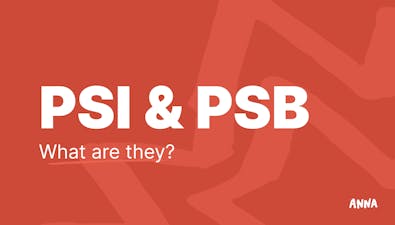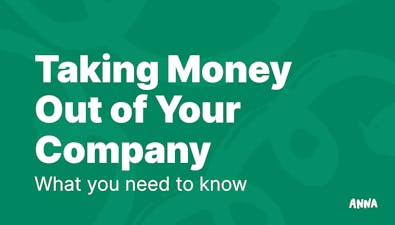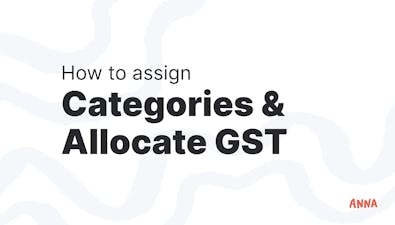
Do I Need an ABN for a One-Off Job as a Freelancer?


Learn whether you need an ABN for a one-off freelance job, including legal requirements, benefits, and key considerations for Australian freelancers.

- In this article
- What Is the Australian Business Number (ABN)?
- Hobby vs. Business: The Fundamental Distinction
- Potential Consequences of Not Having an ABN
- The Step-by-Step Process to Register for an ABN
- Reporting Income and Other Tax Obligations
- Considering the GST Threshold
- Common Misconceptions About ABN and Freelancing
- Conclusion
- Elevate Your Freelance Operations with ANNA
So, do you need an ABN for a single freelance gig? The simplest answer is: it depends on whether you’re ‘in business’ or engaging in a casual hobby.
If your one-off project is truly just that – an isolated instance with no intention of continuing, no formal invoicing, and no plan to profit beyond incidental income – you can likely get by without an ABN.
However, if there’s any chance you’ll seek additional clients or regularly offer paid services, the ATO would see you as operating a business.
In that case, an ABN is not only recommended but crucial for meeting tax obligations and avoiding hefty withholding rates.
Let’s go over these differences below.
What Is the Australian Business Number (ABN)?
While many people associate an ABN with well-established companies, the reality is that sole traders, freelancers, contractors, and even some individuals selling goods and services on an irregular basis may require an ABN if their activities meet certain thresholds or criteria.
Key characteristics of an ABN include:
- It distinguishes your business activities for tax and administrative purposes.
- It is used for issuing invoices and receiving payments from clients or customers.
- It allows you to avoid having tax withheld at the highest rate (47% as of this writing) when you don’t provide an ABN.
- It is often necessary to register for Goods and Services Tax (GST) if your turnover reaches or exceeds (75,000 in a financial year (for most businesses).
The ABN is typically associated with a particular business structure – most often, sole traders register their personal name as the legal entity and receive an ABN linked to it.
Larger businesses, partnerships, trusts, or companies will each have their own ABN.
Hobby vs. Business: The Fundamental Distinction
One of the most important distinctions in determining if you need an ABN is whether the ATO (Australian Taxation Office) considers your activities to be a hobby or a business.
This distinction is crucial because hobbies are not generally taxable, nor do they necessitate an ABN.
By contrast, business activities require compliance with income tax obligations and potential GST obligations and may lead to additional licensing requirements, depending on the type of work.
What Defines a Hobby?
According to the ATO, a hobby is an activity that you engage in primarily for leisure, personal enjoyment, or recreation, rather than a clear intention to generate profits on a repeated and commercial basis.
For example, selling homemade crafts to friends occasionally, providing a service as a favor for a small fee once or twice a year, or undertaking a creative project because you enjoy it rather than as a means of regular income.
Characteristics that often point toward a hobby:
- The activity is done irregularly or infrequently, without promotion or advertising.
- You don’t rely on the income generated to meet everyday expenses.
- You do not have business-related tools or a dedicated workspace – beyond what you would have for personal use.
- There is minimal record-keeping beyond a casual note of costs or sales (if at all).
In these scenarios, the ATO usually would not consider you to be “in business,” and you wouldn’t be required to register for an ABN.
However, if you received a large payment, or you repeated the same gig multiple times, it might raise questions about whether you have crossed the line into business territory.
What Defines a Business?
A business, in the eyes of the ATO, involves a commercial intent to make a profit, a reasonable expectation of deriving income, and an organised approach to operations, marketing, and record-keeping.
If you are actively promoting your freelance services, regularly seeking clients, setting up professional invoices, or conducting repeated transactions that bring in revenue, you are very likely operating a business, even if you do it on a small scale or part-time.
Indicators of a business include:
- A structure that involves regular record-keeping, receipts, and documented expenses.
- Advertising or promoting services through social media, personal websites, or networking platforms.
- An intention to generate income beyond a token amount; you price your services or goods at market rate.
- Repetitive transactions or an organised approach that resembles typical commercial activity.
If you meet these conditions, the ATO generally expects you to register for an ABN, declare your income, and comply with any other relevant tax obligations.
The One-Off Job Scenario
Now, let’s consider a specific question: What if you only have a single, one-off freelance opportunity? Perhaps a company approached you to write a quick blog post, or a friend-of-a-friend needs an illustration for their website. You have no plans to continue freelancing after this.
Are you required to go through the registration process for an ABN just for this single project?
The answer largely hinges on whether this single project can be interpreted as part of a larger intent to operate a business.
If it is genuinely a “once in a lifetime” arrangement – no marketing, no future gigs, and no systematic approach – then it might be classified as a hobby or a private arrangement.
In such a case, you may not need an ABN.
However, you should be aware that some clients will insist on an ABN to handle their own tax compliance smoothly.
On the other hand, if you believe this one-off job may lead to further opportunities down the road or if you already present yourself publicly as a freelancer, the ATO may well see you as operating a business.
This would mean that an ABN is warranted.
Ultimately, it’s safer to register for an ABN if there is any possibility you will continue to accept paid freelance work in the future.
The registration process is free, relatively quick, and can save you from complications such as withheld payments or compliance issues.
Potential Consequences of Not Having an ABN
While many freelancers focus on the question, “Do I really need it?” there are some clear downsides if you do not have an ABN but are effectively carrying on a business in the eyes of the ATO.
🟠 No-ABN Withholding: If you issue an invoice without an ABN, the payer may be legally required to withhold 47% of the payment and remit it directly to the ATO. This means you only receive 53% of the total invoice, which can be a rude shock to anyone expecting the full amount.
🟠 Compliance Issues: If you repeatedly earn income without declaring it through an ABN (when it should be declared), you could be flagged by the ATO. Random audits do happen, and if they find that you have been in business without registering, you may face penalties, backdated taxes, and other administrative hassles.
🟠 Professional Image: Having an ABN often signals to potential clients that you are operating professionally. It can increase your credibility and make the invoicing process more straightforward. Without it, certain larger organisations or government entities may hesitate to contract with you in the future.
🟠 GST Registration: Even though you typically don’t need to register for Goods and Services Tax (GST) unless your annual turnover exceeds $75,000, you cannot register for GST (if and when you do cross that threshold) without first having an ABN. For some freelancers who see sudden growth in their client base, that can become an urgent need.
The Step-by-Step Process to Register for an ABN
If you decide that you do need an ABN or you simply want to be prepared for future work, here is the general process:
1. Check Eligibility: Make sure you are entitled to an ABN. Generally, you need to be carrying on a business in Australia, or about to start one. If you are operating as a sole trader, you must be an Australian resident for tax purposes.
2. Gather Information: You will need your Tax File Number (TFN), personal details (full legal name, date of birth), and any relevant business information (such as business name if you plan to operate under a registered business/trading name).
3. Access the Australian Business Register (ABR) Website: The online application is the fastest method, and in many cases, you’ll receive your ABN immediately.
4. Complete the Application: Provide details about your business activities, structure (sole trader, company, trust, etc.), and contact information. Be honest and accurate because giving misleading information can lead to delays or legal complications.
5. Receive Your ABN: In straightforward cases, you will get your ABN instantly upon successful application. In more complex scenarios (such as uncertain eligibility, incomplete data, or a higher risk of fraudulent registrations) your application might be delayed pending a review.
6. Link Your ABN to Your Business Operations: Once approved, use your ABN for invoicing clients, dealing with the ATO, and any other relevant transactions.
7. Keep Your ABN Details Updated: If your business details (address, contact info, or activities) change, the ATO requires you to update your ABN information within 28 days. Failing to do so can lead to confusion or difficulties when dealing with government agencies.
Reporting Income and Other Tax Obligations
Having an ABN does not necessarily mean you will owe tax at the end of the year because this depends on your total income and expenses, as well as any offsets you may be eligible for.
However, you do need to report your freelancing income as part of your annual tax return if it constitutes business income.
- Sole Trader Tax Return: If you operate as a sole trader, your freelancing income (minus allowable deductions) will be included in your individual tax return on a separate “business schedule.” You pay tax at individual tax rates, and you may be responsible for additional levies such as the Medicare Levy.
- PAYG Instalments: If your freelance income grows, you might eventually be entered into the Pay As You Go (PAYG) instalment system, where you pre-pay your estimated tax liabilities throughout the year. This typically happens once your business tax liabilities exceed a certain threshold.
- Claiming Deductions: As a freelancer, you can claim deductions for expenses directly related to your work, such as software subscriptions, internet, home office costs, professional insurance, or marketing. Good record-keeping is essential to substantiate these claims if the ATO ever audits you.
Considering the GST Threshold
For many freelancers, another critical question arises: Do I also need to register for Goods and Services Tax (GST)?
The basic rule is that if you expect your annual turnover (the total gross income from your business activities) to be $75,000 or more, you must register for GST.
If your turnover is below that threshold, registration is generally optional – unless you are in certain special industries, such as ride-sharing (e.g., Uber drivers), where the threshold does not apply, and you must register regardless of income.
- Voluntary GST Registration: Some freelancers opt to register for GST voluntarily, even if they are below the threshold. This is typically beneficial if most of your clients are GST-registered businesses who can claim GST credits on their end, or if you have substantial business expenses. However, if you work mostly with individual consumers who cannot claim GST credits, voluntary registration might make your services appear more expensive.
- GST Compliance: If you do register for GST, you’ll need to lodge a Business Activity Statement (BAS) (usually on a quarterly basis) reporting the GST you’ve collected from clients and the GST you’ve paid on business expenses (input tax credits). You then remit the net amount to the ATO or receive a refund if your input tax credits exceed the GST collected.
Common Misconceptions About ABN and Freelancing
🟠 “I only did one job, so I don’t need to do anything.”
This could be true if the job is genuinely a hobby, but if you’re effectively conducting business activities or you see potential for future work, the ATO may not see it that way.
🟠 “If I don’t make a profit, I don’t need an ABN.”
Making or not making a profit in a specific year is less important than the intent and repetition of activities. Even if you’re at a loss or just breaking even, if you operate in a business-like manner, you likely still need an ABN.
🟠 “I can apply for an ABN whenever I want, there’s no rush.”
If you are invoicing clients without an ABN, they may withhold 47% of your payment. It’s usually best to sort out an ABN before sending out invoices to avoid complications.
🟠 “Getting an ABN automatically means I have to pay a lot of tax.”
Having an ABN simply identifies you as a business for tax purposes. What you pay in tax depends on your net income, allowable deductions, and other factors. If your net earnings are low, your tax liability could be minimal or even zero.
Conclusion
Deciding whether you need an ABN for a one-off freelance job in Australia ultimately boils down to whether the ATO considers your activity to be a hobby or a business.
If you’re engaging in a genuinely one-time, casual project with no intention of repetition or profit-making beyond a token fee, you may fall under the hobby umbrella.
In that case, you typically wouldn’t require an ABN, and the associated administrative tasks would be minimal.
However, if there is any chance that your one-off gig represents the beginnings of a business – or if you already market yourself as a freelancer and are open to additional gigs – then you likely need to register for an ABN.
Elevate Your Freelance Operations with ANNA
If you’re ready to move from a casual, one-off gig to a more sustained freelancing endeavor (or if you simply want to keep your business activities professional and organised) ANNA can help take your management to the next level.
This digital platform streamlines all the critical financial tasks that come with running a small business or freelancing operation, so you can focus on doing what you love.
Here’s what ANNA brings to the table:
🟠 Streamlined Financial Management
ANNA simplifies day-to-day financial tasks, from raising invoices to handling payments.
Rather than juggling multiple apps, you can run much of your business’s financial operations from a single, user-friendly hub.
🟠 Effortless Expense Tracking and Receipt Management
Forget about the stress of crumpled receipts and missing expense records. ANNA automatically categorises costs and matches them to relevant invoices, ensuring you maintain accurate records without lifting a finger.
🟠 Automated Invoicing and Payment Reminders
Chasing up late payments can be one of the biggest headaches for freelancers.
With ANNA, you can set up professional-looking invoices and program automatic reminders for clients, helping you get paid on time, every time.
🟠 Simplified Tax Reporting
For many sole traders and freelancers, tax season can be overwhelming.
ANNA’s built-in tax tracking features provide an overview of what you owe, help you plan upcoming liabilities, and let you see how business expenses affect your bottom line.
By gathering all income and expense data in one place, ANNA makes it easier to stay compliant with minimal fuss.
🟠 Efficient Employee Expense Management
If you’ve grown your freelancing into a team-based operation, whether by hiring part-time help or collaborating with peers, ANNA offers secure debit cards, virtual cards, and mobile payment options like Apple Pay and Google Pay. You can monitor and categorise employee expenses in real time, ensuring transparency and accountability across the board.
Ready to streamline your finances and put your focus back on growing your business?
Get started with ANNA today to experience a smarter, more efficient way to manage your freelance or small business operations!






